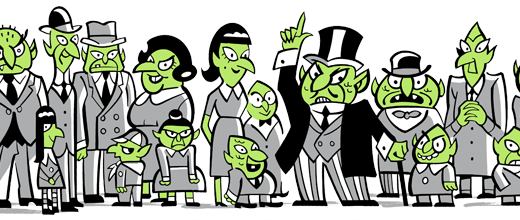Glenn Greenwald's Selective Skepticism
Famed investigative reporter loses his wariness of the intelligence community when culture wars come to the fore.
Lab leak theory, the idea that Covid was inadvertently released by a Chinese lab, is making a resurgence thanks to the advocacy of American spy agencies which have been echoed by a cadre of contrarian pundits, notably Matthew Yglesias, Jonathan Chait, Andrew Sullivan and Glenn Greenwald.
I’m agnostic on lab leak theory. From the published reports, none of the competing theories –– zoonotic transmission or lab leak –– have been proven. The more conspiratorial variant of lab leak (an engineered bioweapon) is now overwhelmingly discounted by scientists.
Of the various advocates for lab leak, I’m fascinated by the case of Glenn Greenwald.


Greenwald, like the other lab leak advocates, seems motivated the fact the debate can be a proxy for cultural war battles. Fair enough. But for Greenwald, more than the others, it seems incongruous to endorse a theory so heavily advocated by intelligence agencies.
Greenwald has in the past rightly upbraided American journalists for uncritically echoing narratives given to them by intelligence sources. Here is a recent post he wrote decrying the complicity of the media with intelligence agencies:
As the CIA became one of the leading anti-Trump #Resistance factions — a key player in domestic politics to subvert the presidency of the 45th President regarded by media figures as a Hitler-type menace — the bond between the corporate press and the intelligence community deepened more than ever. It is not an exaggeration to call it a merger: so much so that a parade of former security state officials from the CIA, NSA, FBI, DHS and others was hired by these news outlets to deliver the news. The partnership was no longer clandestine but official, out in the open, and proud.
If you read The New York Times account of the lab leak theory, it is clear that it is intelligence agencies that are pushing this, often with ambiguous evidence:
President Biden’s call for a 90-day sprint to understand the origins of the coronavirus pandemic came after intelligence officials told the White House they had a raft of still-unexamined evidence that required additional computer analysis that might shed light on the mystery, according to senior administration officials.
The officials declined to describe the new evidence. But the revelation that they are hoping to apply an extraordinary amount of computer power to the question of whether the virus accidentally leaked from a Chinese laboratory suggests that the government may not have exhausted its databases of Chinese communications, the movement of lab workers and the pattern of the outbreak of the disease around the city of Wuhan.
In addition to marshaling scientific resources, Mr. Biden’s push is intended to prod American allies and intelligence agencies to mine existing information — like intercepts, witnesses or biological evidence — as well as hunt for new intelligence to determine whether the Chinese government covered up an accidental leak….
One allied nation passed on information that three workers in the Wuhan virological laboratory were hospitalized with serious flulike symptoms in the autumn of 2019. The information about the sickened workers is considered important, but officials cautioned that it did not constitute evidence that they caught the virus at the laboratory — they may have brought it there…
While 18 agencies make up the intelligence community, only a handful have been major players in assessing the likely origins of the virus. Most of the broader intelligence community, including the C.I.A. and the Defense Intelligence Agency, believe there is not yet sufficient information to draw a conclusion, even with low confidence, about the origins.
The New York Times report makes clear just how uncertain the evidence is. But there’s a further problem. A virologist who has a theory would present public information as to how she arrived at her conclusion. With intelligence agencies, once they do arrive at a conclusion, they would almost certainly not share sources. Spies love keeping secrets.
Glenn Greenwald was once a writer who would leap to criticize journalists who relied on the intelligence community on so uncertain a matter. No more.
Share and Subscribe:
If you enjoyed this post, please share:
Or subscribe:




I think your read on why Yglesias and others have been posting about the lab leak theory is misguided. It's not out of a sense of contrarianism, nor is it a culture war proxy. Rather it's because the meta conversation about the hypothesis--which featured a year of left-of-center types making strong claims about it being a conspiracy theory--evinces an unhealthy feature of left discourse.
Is Greenwald really worth the trouble of bashing any more?